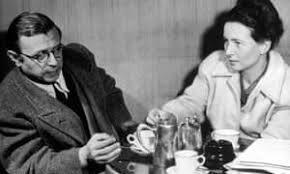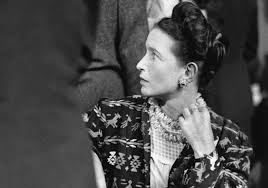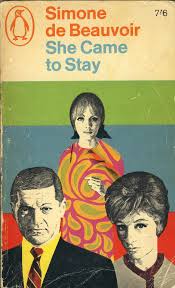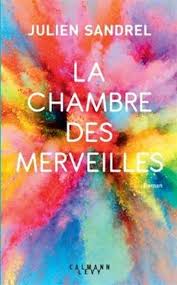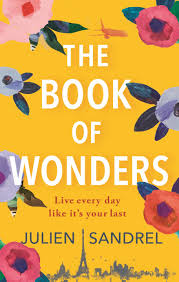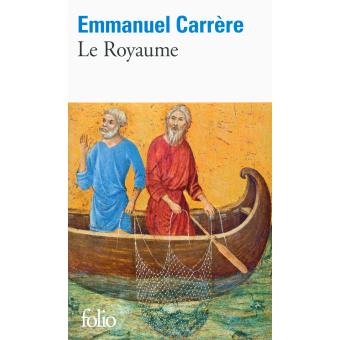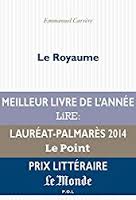And Their Children After Them Nicolas Mathieu
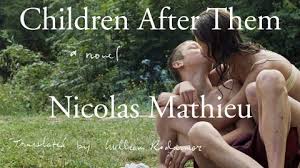
This French novel by Nicolas Mathieu won the Prix Goncourt in 2018 and since then American translator William Rodamor has made it available to a wider audience. Translations are wonderful because of the immersion in another culture and this is particularly true of And Their Children After Them which is admired for its verisimilitude. It provides an exact reflection of what it was like living in small town, North Eastern, France in the 1990s, as did Mathieu. This is not the area of France that middle-class English and Irish families would choose for expatriation.

Heillange, an entirely fictional town in Lorraine, is near the German and Luxembourgian frontiers but, in spite of natural parks and forests, does not attract tourists. It is a post-industrial landscape. The steel mills and blast furnaces rot, corrugated iron sheets flap and mass employment locally is a thing of the past. Young men hang out in tenement car parks smoking spliffs whilst their fathers’ bodies decay from the lack of physical work and the consumption of red meat and beer. Women fight depression from settees on which they sag watching daytime TV from Florida and California. Disappointment and disillusionment strangle hope and long-lasting marriages collapse into divorce.

The title And Their Children After Them is taken from a verse in The Book of Sirach, or Ecclesiasticus, which reads ‘There are others who are not remembered/as if they had never lived/who died and were forgotten/they, and their children after them’. The novel is structured into three long parts representing 1992, 1994 and 1996; finally there is a coda for 1998 – World Cup year.
There are three main characters who are in their mid-teens in the first part and adults by the end. Hacine’s heritage country is Morocco and he and his father, Bouali, travel there every summer to visit his mother who has already returned to her homeland. Anthony’s father, Patrick, was a blue-collar worker and now scrapes by with a few handyman jobs. Anthony’s mother, Hélèn, and Bouali tangentially come into contact when their sons manufacture a contretemps over a motorbike.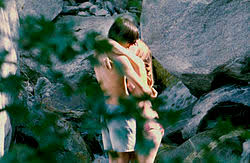
The final central character is Stéphanie whose parents are members of the bourgeoisie and the sailing club. She, with her facility in mathematics, has more of a chance of escaping the curse of the valley. She might well go on to live a very different life from those of the provincial professionals with whom her father, Pierre, consorts. Steph, as well as one or two of her peers, quite likes a bit of rough sex with Anthony. And so the three young people ricochet off each other from time to time as they undergo the rites of passage.
Mathieu is mentioned in sentences which name check Emil Zola and D. H. Lawrence. Gritty realism is the plat du jour and there is literally plenty of grit in the air. Hopeful entrepreneurs grab government loans to improve the area. They smash up the wastelands and clear dereliction causing clouds of dust whilst instigating lovely tourist trails through the hills and round the lakes. At the end of the novel the entire nation is embroiled in the final matches of the World Cup but the mood of euphoria is undermined, in hindsight, by the looming failure of the holiday camps and, further down the road, recession, terrorism and pandemic. Racism, seemingly muted as citoyens embraced their multi-ethnic national team, whilst viciously hating the homogenous Caucasian players of Croatia, will re-emerge in the years to follow.

Mathieu does well in presenting a credible point of view for each protagonist and portraying their mothers, fathers, siblings, uncles and cousins. Rodamor does a fair job of transforming prose that is so quintessentially French that it really does not bear anglicising. It is a depressing story but one that allows glimpses of hope or, at least, stoicism.
Works cited
Mathieu, N. And Their Children After Them. Sceptre. 2020.
A version of this review first appeared on page 34 of the Weekend section of the Irish Examiner on 15th August 2020. It is reproduced here by permission of the Editor.
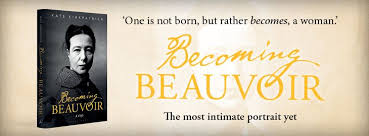
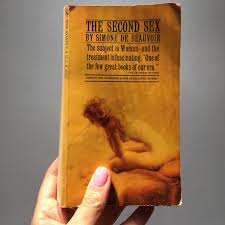

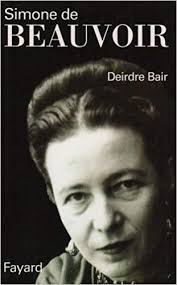
 In Becoming Beauvoir, Kirkpatrick accumulates evidence from as many sources as possible so that she has cognisance of who did what with whom and who knew about what. In one letter Beauvoir is described as ‘shady and dubious’ and rebuked for deceitful behaviour. Although the words were hurtful she did not alter her trajectory and Beauvoir moved into the 1940s still maintaining relationships with at least four lovers, of whom, at least two were women. She felt anxious and sometimes despairing but she did not give anyone up.
In Becoming Beauvoir, Kirkpatrick accumulates evidence from as many sources as possible so that she has cognisance of who did what with whom and who knew about what. In one letter Beauvoir is described as ‘shady and dubious’ and rebuked for deceitful behaviour. Although the words were hurtful she did not alter her trajectory and Beauvoir moved into the 1940s still maintaining relationships with at least four lovers, of whom, at least two were women. She felt anxious and sometimes despairing but she did not give anyone up.